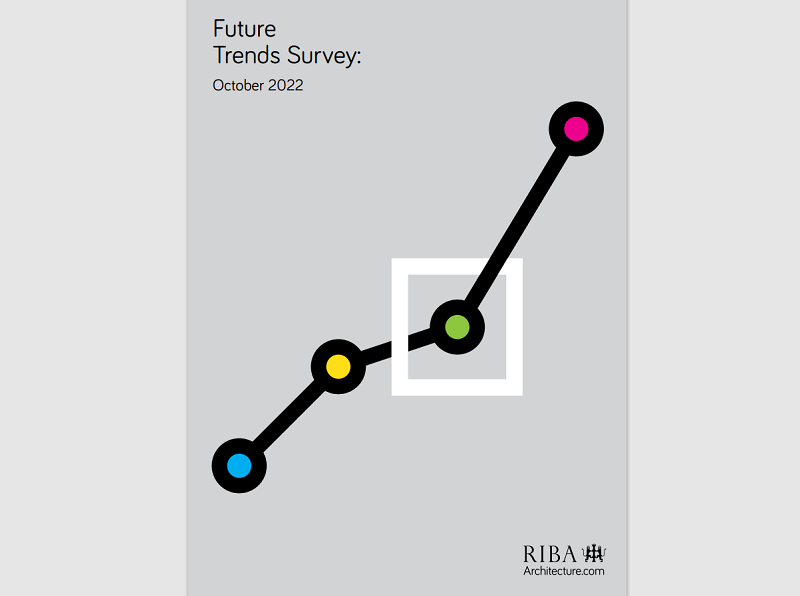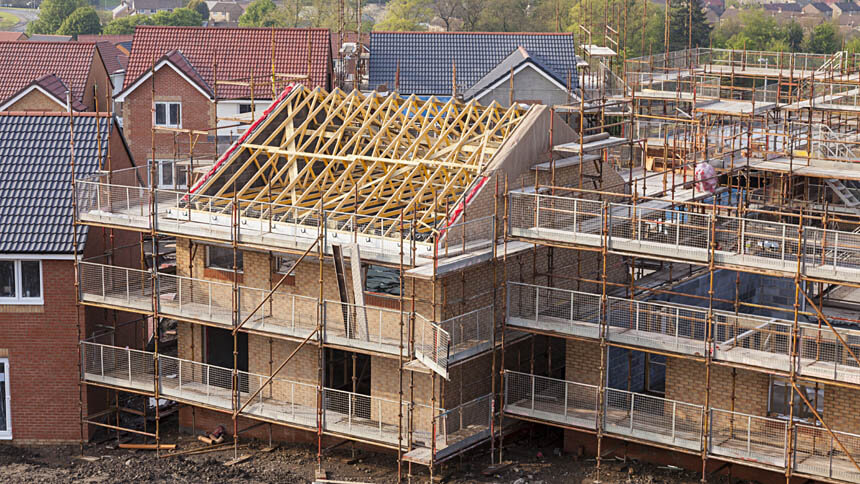The Royal Institute of British Architects (RIBA) has published the latest Future Trends survey results, a monthly report of the business and employment trends affecting the architects’ profession.
In October, the RIBA Future Trends Workload Index fell by 3 points to a balance figure of -20. In the next three months, 12% of practices expect workloads to increase, 32% expect workloads to decrease and 56% expect them to remain the same.
All the monitored work sectors have once again posted a negative balance. The private housing sector has posted the lowest figure – remaining the same as last month, at -17. The biggest fall in confidence has been in the public sector, which posted a balance figure of –12, down from –8 in September. This is closely followed by the community sector, posting a score –10, compared to -7 last month. The commercial sector, which includes offices, retail, and entertainment has fallen by 1 point to -8.

Levels of confidence continue to vary by practice size. The outlook among small practices (1-10 staff) has fallen further, with a score of -26, down from -21 in September. 35% of small practices now expect workloads to decrease whilst only 9% expect them to grow. In contrast, large (50+ staff) and medium-sized practices (11+ staff), remain optimistic about future workloads, returning a combined balance figure of +15, the same as last month.
Confidence continues to fall in all regions. London remains the most pessimistic, posting a balance score of –32, down from –23 in September. 40% of London-based practices now expect workloads to fall. Outside of the capital, the South of England and the Midlands & East Anglia have both slipped further into negative territory this month, posting -27 and –23 respectively. In other regions there are some signs of pessimism abating. Wales and the West has posted a figure of –5, up from –17 in September and the North of England has posted a score of –3, up from –5.
In terms of staffing:
- Following a fall into negative territory in September (-6), the index rose this month to zero, suggesting stable permanent staffing levels in the coming months.
- In the next three month, 8% of practices expect to employ fewer permanent staff, 8% expect to employ more, and 85% expect permanent staffing levels to stay the same.
- Overall, medium (11+ staff) and large (50+ staff) practices are positive about future staffing levels, with a combined figure of +9. Small (1 - 10 staff) practices continue to expect falling permanent staff numbers with an index figure of -2.
- Regionally, the picture is mixed. Both Wales & The West (+14) and the South of England (+5) have returned positive figures for October. While still negative, London has somewhat recovered this month, returning a score of -3. The Midlands & East Anglia (-5) and the North of England (-5) also returned negative Index figures this month.
- The Temporary Staffing Index remained negative, posting a balance figure of -1 in October, compared to -2 in September.
- Levels of personal underemployment have decreased again slightly; in October 13% reported being personally underemployed in the previous month, compared to 16% in September.
RIBA Head of Economic Research and Analysis, Adrian Malleson, said: “In the context of wider economic and political uncertainty – architects’ confidence in future workloads has continued to fall. Current workloads are just 92% of what they were a year ago.
“From planning delays to product cost inflation, PII cost and exclusions, and projects failing to progress past design stages as costs become clear, practices are grappling with persistent challenges.
“However, when comparing our current figures to previous downturns, one significant difference emerges: pessimism about future work has not resulted in widespread anticipation of staff losses. In our post-Brexit environment, qualified, talented architectural staff are hard to recruit and retain. So far practices are, overall, seeking to keep staff.
“Once again, our findings suggest the architects' market is entering a challenging period of contracting workloads. To mitigate a prolonged recession, the UK must invest in creating sustainable homes and infrastructure now. This will help to increase productivity and tackle the climate emergency head-on.
“We will continue to report these findings to the Government and work with other built environment bodies to monitor ongoing trends.”




















